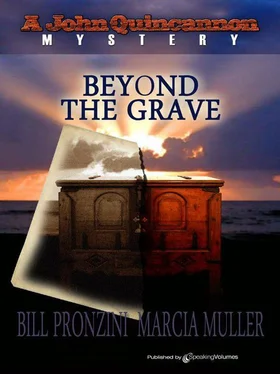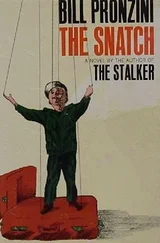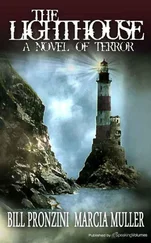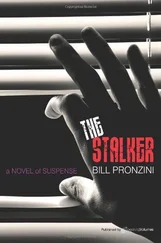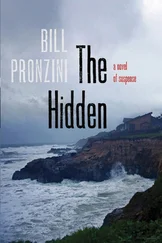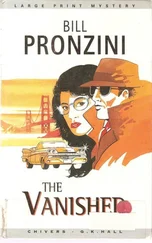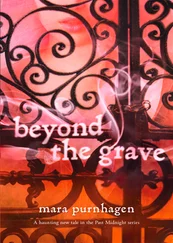Bill Pronzini - Beyond the Grave
Здесь есть возможность читать онлайн «Bill Pronzini - Beyond the Grave» весь текст электронной книги совершенно бесплатно (целиком полную версию без сокращений). В некоторых случаях можно слушать аудио, скачать через торрент в формате fb2 и присутствует краткое содержание. Год выпуска: 2011, ISBN: 2011, Издательство: Speaking volumes, Жанр: Исторический детектив, на английском языке. Описание произведения, (предисловие) а так же отзывы посетителей доступны на портале библиотеки ЛибКат.
- Название:Beyond the Grave
- Автор:
- Издательство:Speaking volumes
- Жанр:
- Год:2011
- ISBN:9781612321202
- Рейтинг книги:4 / 5. Голосов: 1
-
Избранное:Добавить в избранное
- Отзывы:
-
Ваша оценка:
- 80
- 1
- 2
- 3
- 4
- 5
Beyond the Grave: краткое содержание, описание и аннотация
Предлагаем к чтению аннотацию, описание, краткое содержание или предисловие (зависит от того, что написал сам автор книги «Beyond the Grave»). Если вы не нашли необходимую информацию о книге — напишите в комментариях, мы постараемся отыскать её.
Beyond the Grave — читать онлайн бесплатно полную книгу (весь текст) целиком
Ниже представлен текст книги, разбитый по страницам. Система сохранения места последней прочитанной страницы, позволяет с удобством читать онлайн бесплатно книгу «Beyond the Grave», без необходимости каждый раз заново искать на чём Вы остановились. Поставьте закладку, и сможете в любой момент перейти на страницу, на которой закончили чтение.
Интервал:
Закладка:
Quincannon hesitated. “Listen to me, Senor Cordova-”
“No, no, I will not listen! Alfredo! Sebastian! Come in here, quickly!”
A rear door was thrown open, and the two young men ran in from the storeroom. Big, both of them-and strong; Quincannon knew it would be painful to do battle with them, even with his college training in pugilism and even if he had been inclined to a fight, which he wasn't.
He said to Cordova, “Very well. As you wish. But I will soon return, or others will come in my place. The policia , perhaps. You cannot hold your silence forever, amigo.”
Cordova said nothing. He seemed to have aged several years in the past few minutes, to have become a stooped and shrunken old man; even his clothing seemed to hang on him now, as baggily as on a scarecrow.
“We will know the truth,” Quincannon said ominously. “Sooner or later, we will know the truth.” He turned on his heel and walked out.
He sat the claybank for a full minute, waiting to see if Cordova would follow after him for any reason. No one followed after him. Finally, feeling disgruntled, he reined the horse around and made for Victoria Street and the Arlington stables.
It had been an odd encounter, he thought as he rode. Cordova had acted as though he were the thief, not the victim. Had he stolen the Velasquez statue? If he hadn't, how had it come into his hands? And why was he so afraid to admit to knowledge of it?
A pretty puzzle, to be sure. And one that might not have an easy solution. He had hoped to be on board tomorrow's train for San Francisco; as matters stood now, he would be spending tomorrow-and God knew how many others after it-in Santa Barbara and its environs.
Being a dedicated and conscientious detective had its drawbacks sometimes. Damned if it didn't.
It was dusk when he arrived at the Arlington Hotel. In his suite he changed clothes for the second time, putting on a fine new Cheviot coat, striped trousers, and a French cravat. Downstairs again, he paused to buy two more Cuban panatelas and a freshly blended latakia pipe mixture for his pouch; and then he took himself off to the St. Charles Hotel at State and De La Guerra streets, a few blocks away.
The St. Charles was an older, two-story adobe structure, its upper level girdled by a broad veranda. It was nowise as large or as opulent as the Arlington, but there was an air of comfort and stability about it-a hotel for businessmen and visiting residents of the outlying towns and valleys, rather than for tourists come to town to take the waters, the sights, or other tourists.
When Quincannon asked at the desk for Felipe Velasquez, the clerk directed him to the small, dark bar off the lobby. Inside the bar he found Velasquez sitting alone before the fireplace, elegantly attired in a black, silver-trimmed charro outfit, a ruffled shirt, and a string tie with the familiar bull's-head clasp. He was indulging in a before-dinner glass of wine, which seemed to have done nothing to mellow him. He was in one of his dour moods. He greeted Quincannon tersely, invited him to sit down, and demanded to know what progress he had made since their arrival.
“Quite a bit, sir. Quite a bit.”
“You have found James Evans?”
“No. But I've found the previous owner of the statue.”
“Diablos!” Velasquez sat forward abruptly, almost spilling his wine; the ends of his tie made a sharp clicking noise as they came together, like castanets. “Who is he, this previous owner?”
“A man named Luis Cordova.”
“Cordova, Cordova. I know no one by that name.”
“He owns a dry-goods store in the Mexican quarter. Evans pilfered the statue from his rooms above the store.”
“Only the poor live in the Mexican quarter. How would such a man-”
“-come to have a gold statue worth two thousand dollars? I don't know-yet.” Quincannon went on to recount the details of his brief confrontation with Luis Cordova.
Velasquez saw nothing very puzzling in Cordova's behavior. He said angrily, “He must have stolen the statue himself. From someone else, or perhaps even from the place where my father and Padre Urbano hid it.”
“He might not have stolen it at all,” Quincannon said.
“Nonsense. Why else would he lie to you? Why else would he be so frightened? His actions make no sense unless he is of the same breed as this man Evans.”
Quincannon adopted the patient, gently lecturing tone he used on stubborn and narrow-minded individuals. “There may be another explanation, Senor Velasquez. The facts we have now are too few. We need more information about Cordova, his background and private life, before any definite conclusion can be reached.”
“And how will you find out these additional facts?”
“I have my methods.”
Velasquez grunted. “How long will these methods take, eh? Days? Weeks?”
“I have only been in Santa Barbara half of one day,” Quincannon reminded him, “and already I've accomplished much.”
“Bah,” Velasquez said, unconvinced. “Put a pistol to Cordova's head; then he will tell you what we want to know.”
“I would, if I felt it would accomplish the purpose. But I don't believe it would.”
“And why not?”
“It isn't death or violence that Cordova fears. It's something else, something profound.”
“What is so profound as death?”
“For most men, nothing. For some men, a great deal.”
“Bah. You speak in platitudes.”
“And what is a platitude but a common truth?”
Velasquez seemed about to argue further, changed his mind, picked up his wine, and sat peering into its dark red depths for several silent moments. Then he drained the glass, wiped his lips delicately with a lace handkerchief, and said, “Very well. You are the detective, and a competent one, as you have proven. I accept your judgment.”
“Thank you.”
“But I will not tolerate a long delay in this matter. I must know where Cordova obtained the statue, and as quickly as possible. Comprende Usted? ”
“Perfectly.”
“ Bueno .” Velasquez consulted a gold, hunting-style pocket watch. “I must leave now; I have a dinner engagement in twenty minutes, with relatives of my wife.” He got to his feet.
Quincannon asked, “You still plan to return home tomorrow?”
“Yes. I leave at eight o'clock. And I will expect you at the rancho within three days. If you do not come …”
“I'll come. You have my word on that.”
Velasquez nodded and took his leave without another word. Quincannon watched him walk out into the lobby, thinking that he did not relish the prospect of a long ride out to Santa Ynez Valley, or the prospect of a day or more under the same roof with Felipe Antonio Abregon y Velasquez. He had a feeling gringos were not treated with much respect at what was left of Rancho Rinconada de los Robles.
THREE
Quincannon wandered down State Street, marveling at the big electric arc lights set atop tall wooden poles every half block that produced a white glare so bright the thoroughfare was like a strip of noonday cut from the darkness. Santa Barbara, he reflected, was quite a progressive and attractive little community. Still, he preferred San Francisco. Not only did it contain much that satisfied his broad and sometimes eccentric tastes, it also contained Sabina.
Near Stearns Wharf he found a seafood restaurant that served plump raw oysters and a substantial crab bouillabaisse as palatable as any in San Francisco. It was while partaking of such meals as this that he most regretted being a drunkard. A bottle of chilled French chardonnay would have offered an excellent compliment to the bouillabaisse.
He smoked a post-prandial pipe and considered the rest of the evening. The sulfur spring on Burton Mound? He had taken the waters there on his last visit to Santa Barbara-he had needed a little relaxation after his harrowing experience in Spookville-and had found them invigorating. But it was a long way to Burton Mound, as he recalled, he was not sure the spring was open to visitors after dark, and the waters did smell unpleasantly of rotten eggs.
Читать дальшеИнтервал:
Закладка:
Похожие книги на «Beyond the Grave»
Представляем Вашему вниманию похожие книги на «Beyond the Grave» списком для выбора. Мы отобрали схожую по названию и смыслу литературу в надежде предоставить читателям больше вариантов отыскать новые, интересные, ещё непрочитанные произведения.
Обсуждение, отзывы о книге «Beyond the Grave» и просто собственные мнения читателей. Оставьте ваши комментарии, напишите, что Вы думаете о произведении, его смысле или главных героях. Укажите что конкретно понравилось, а что нет, и почему Вы так считаете.
